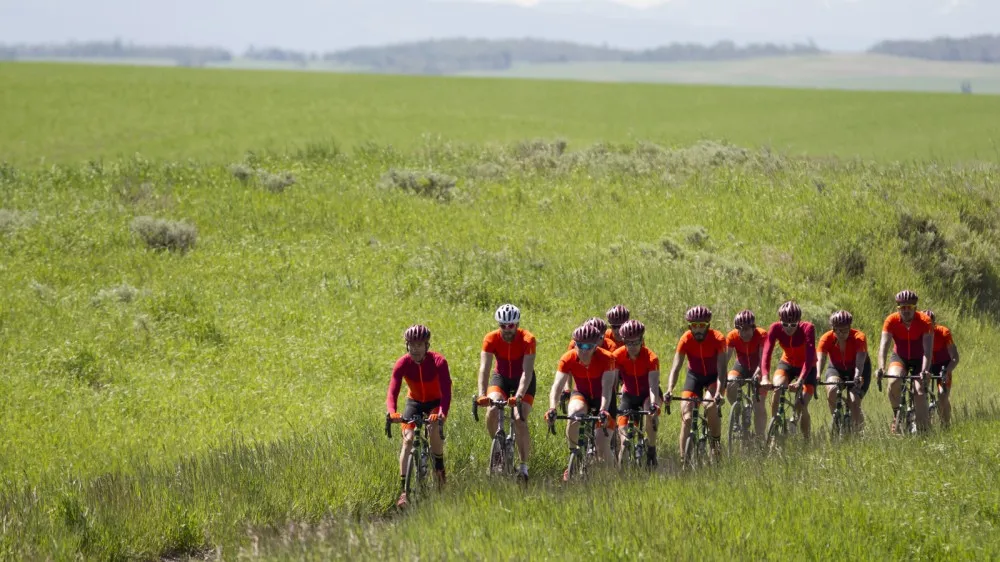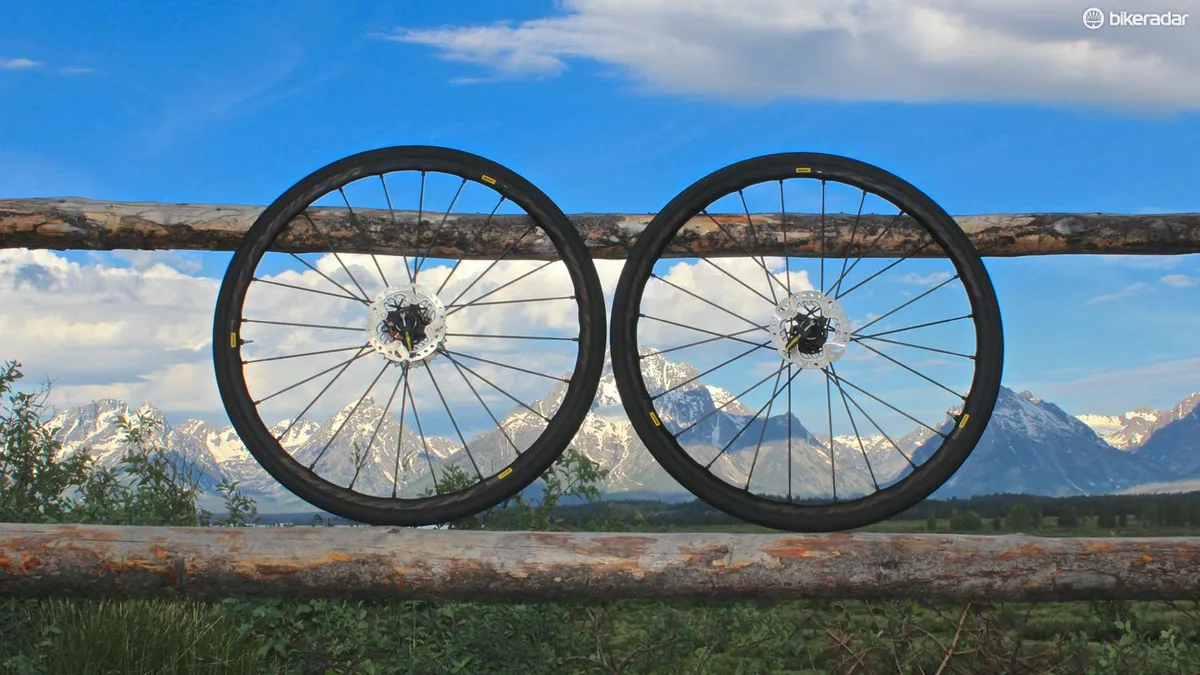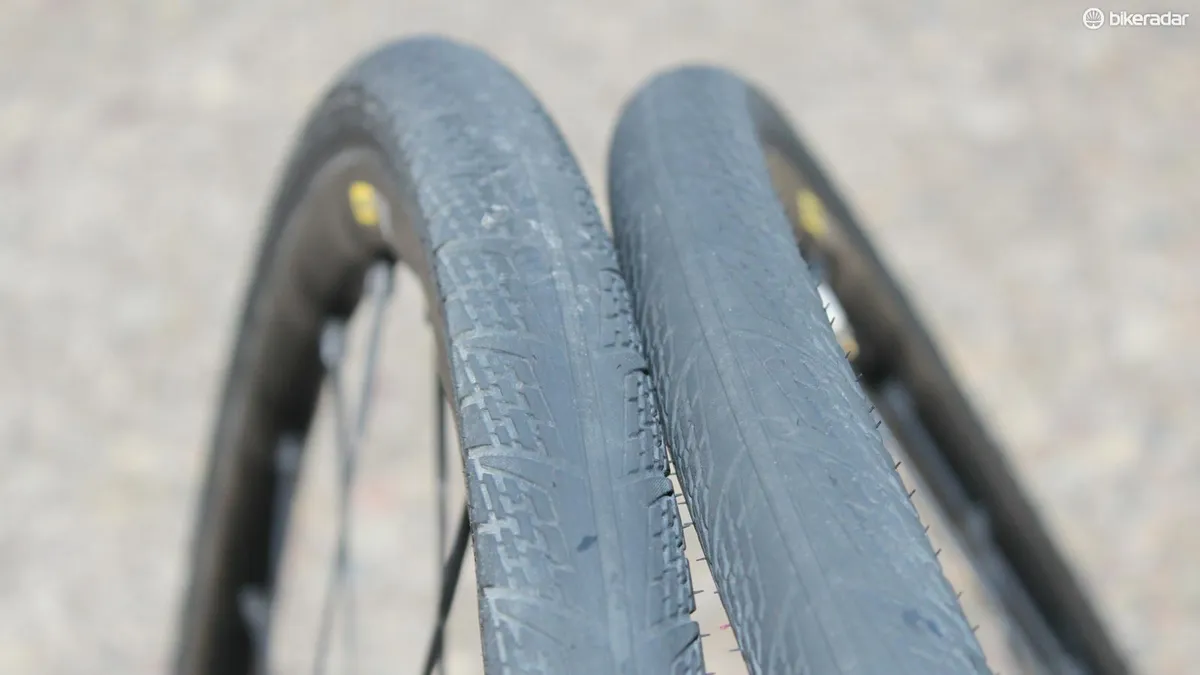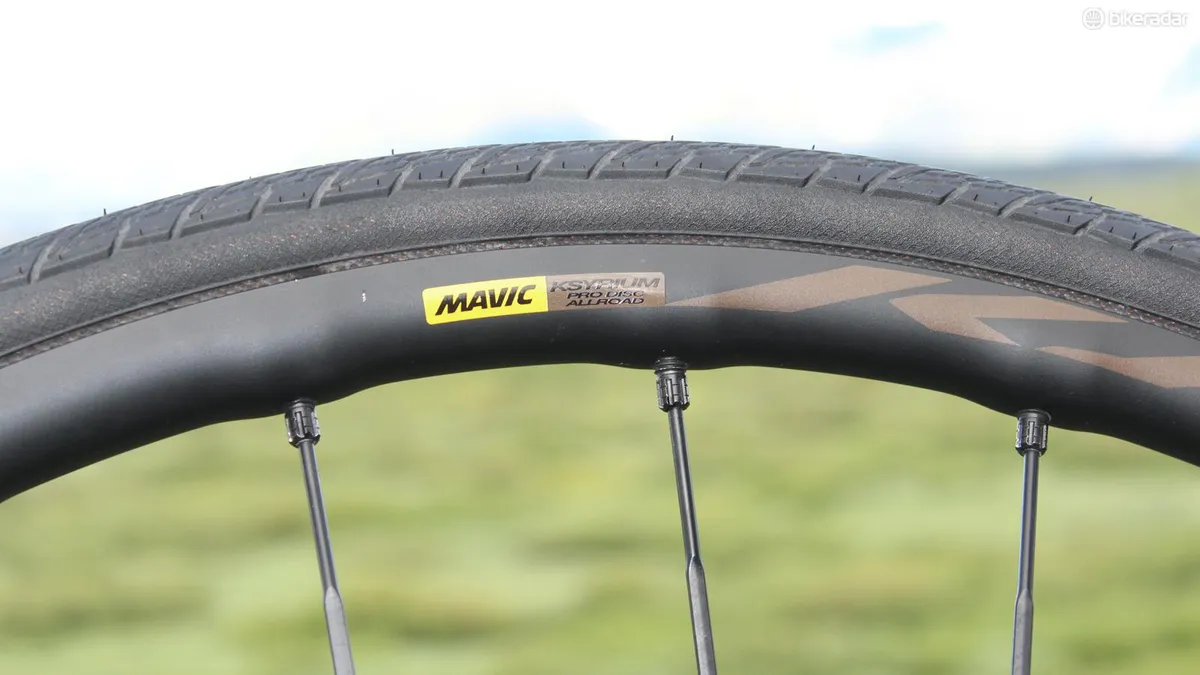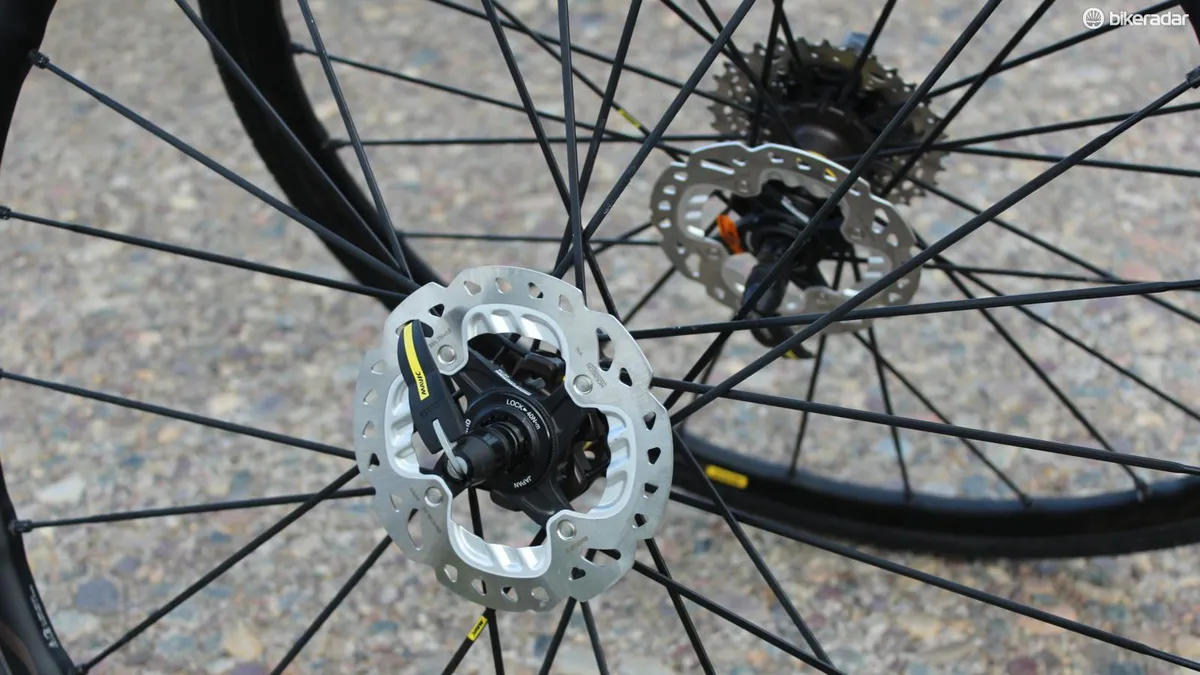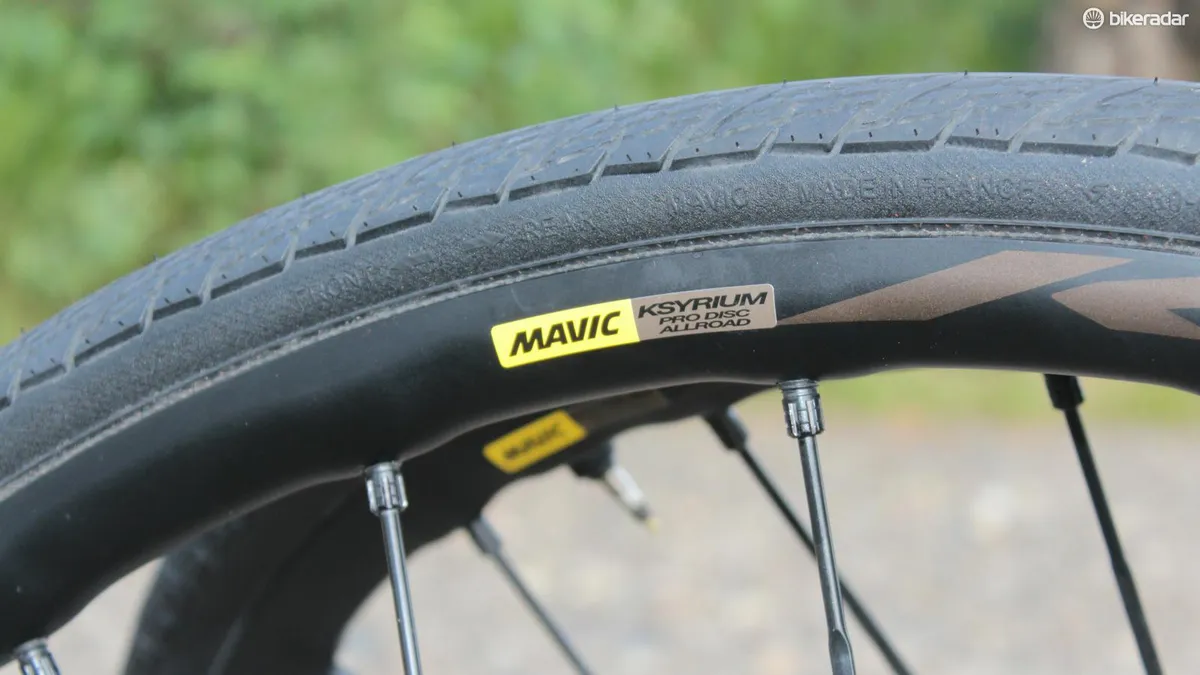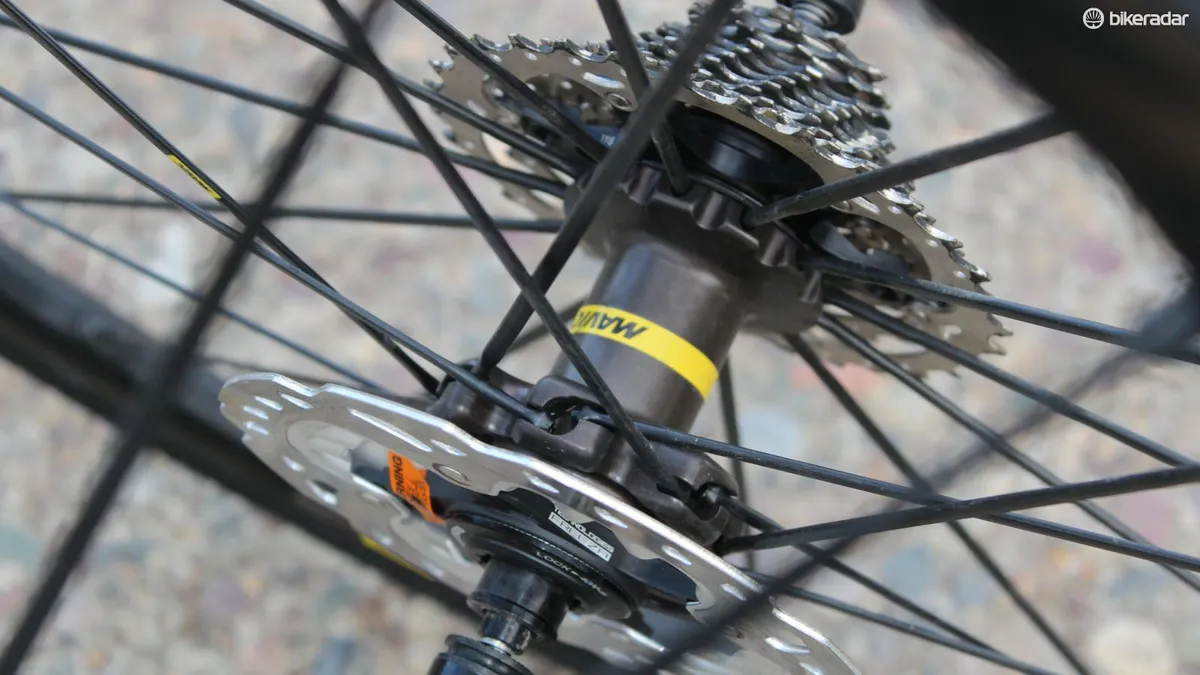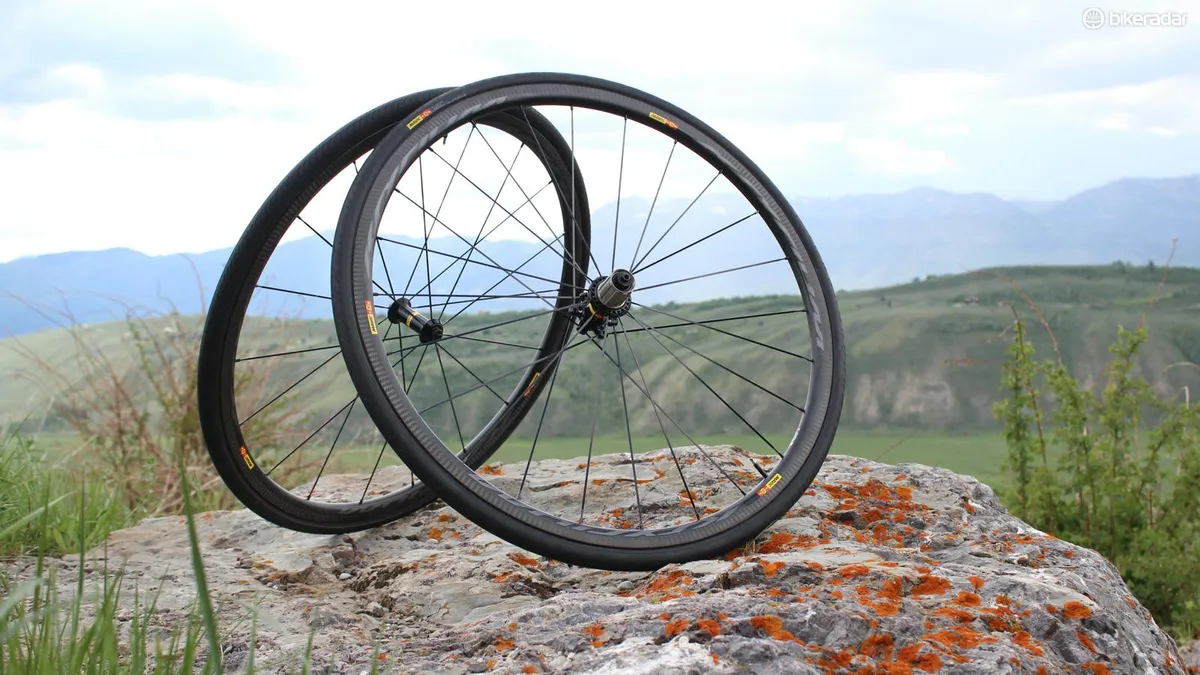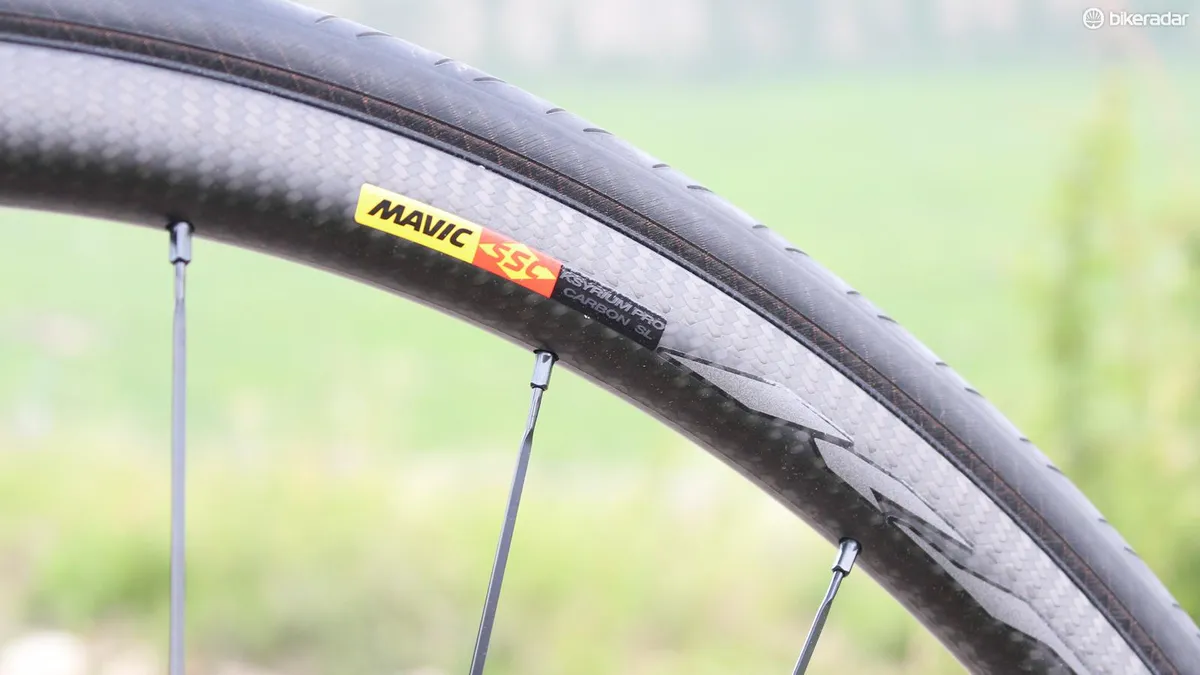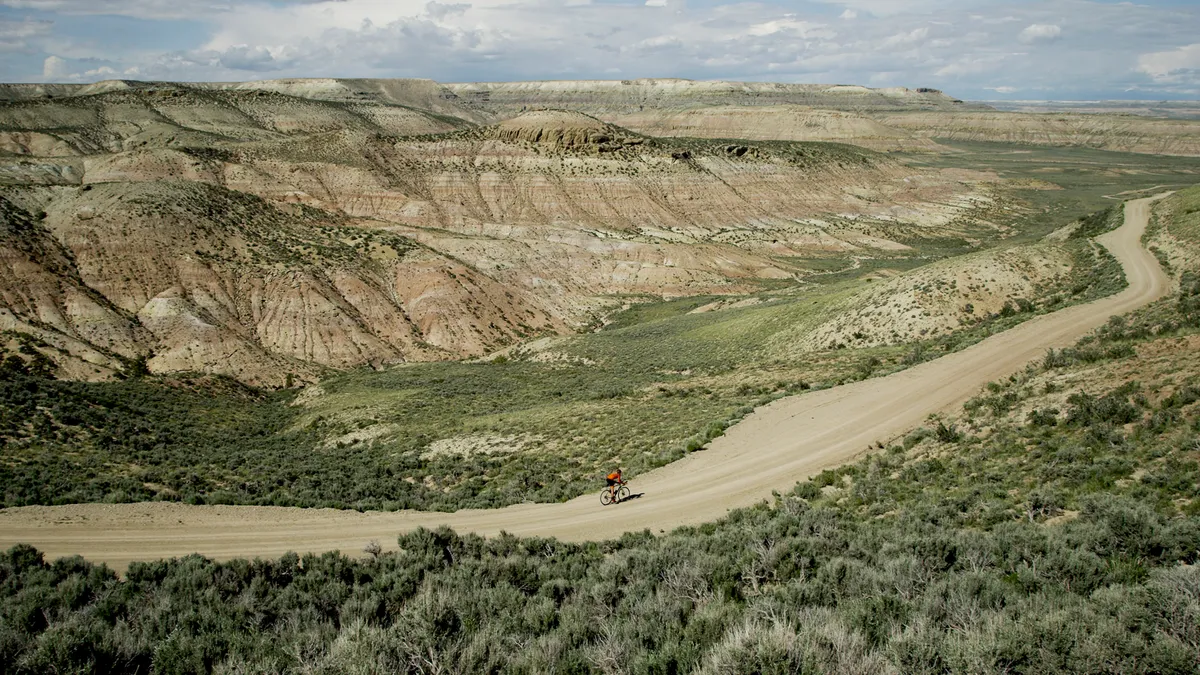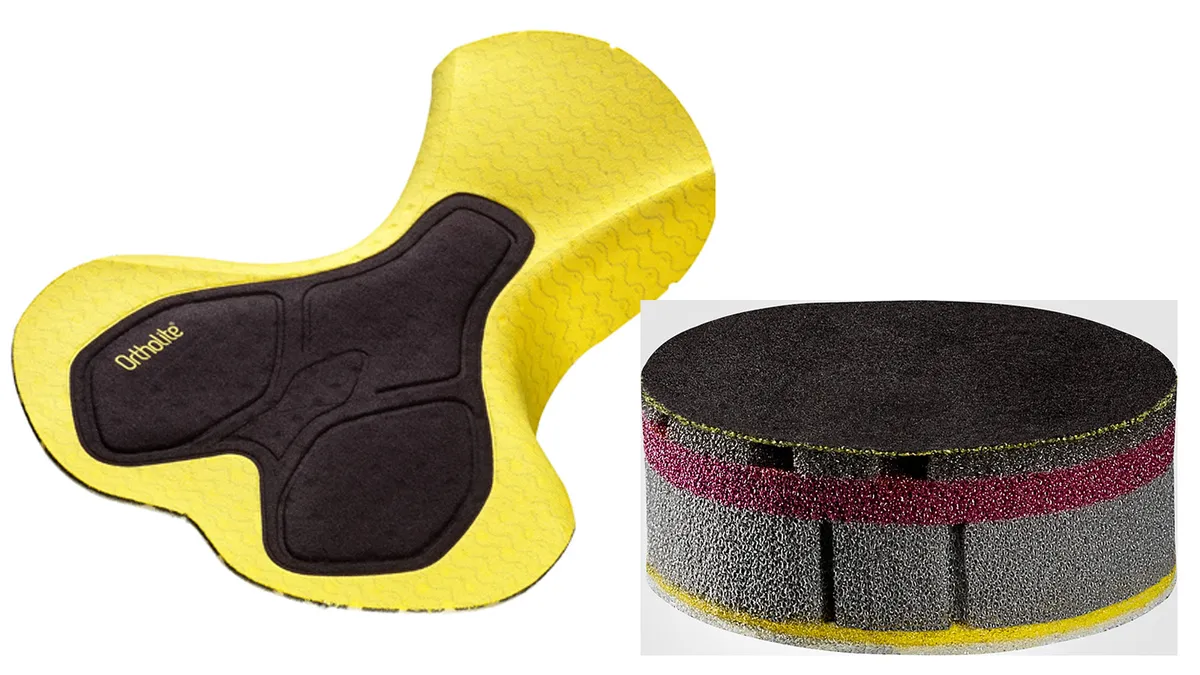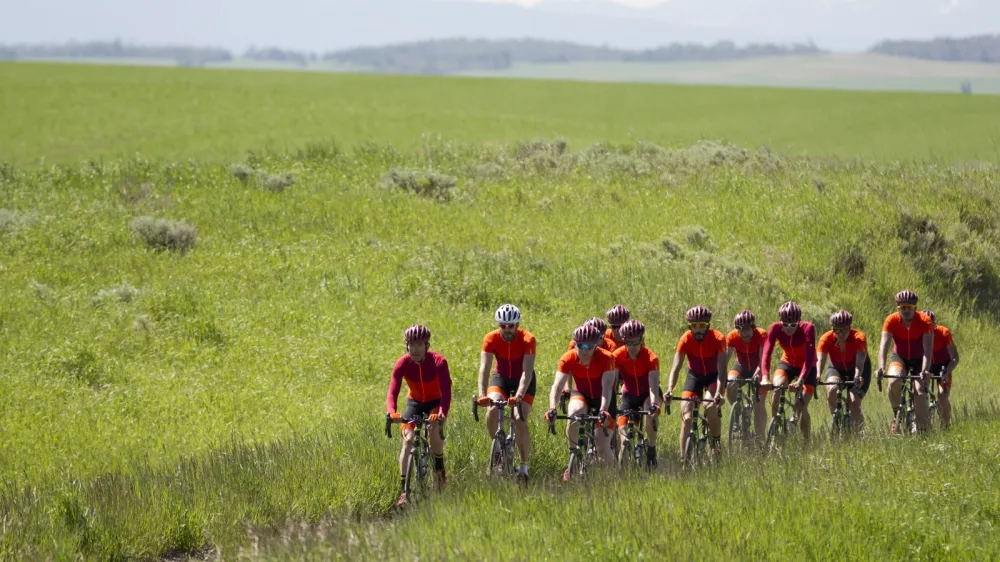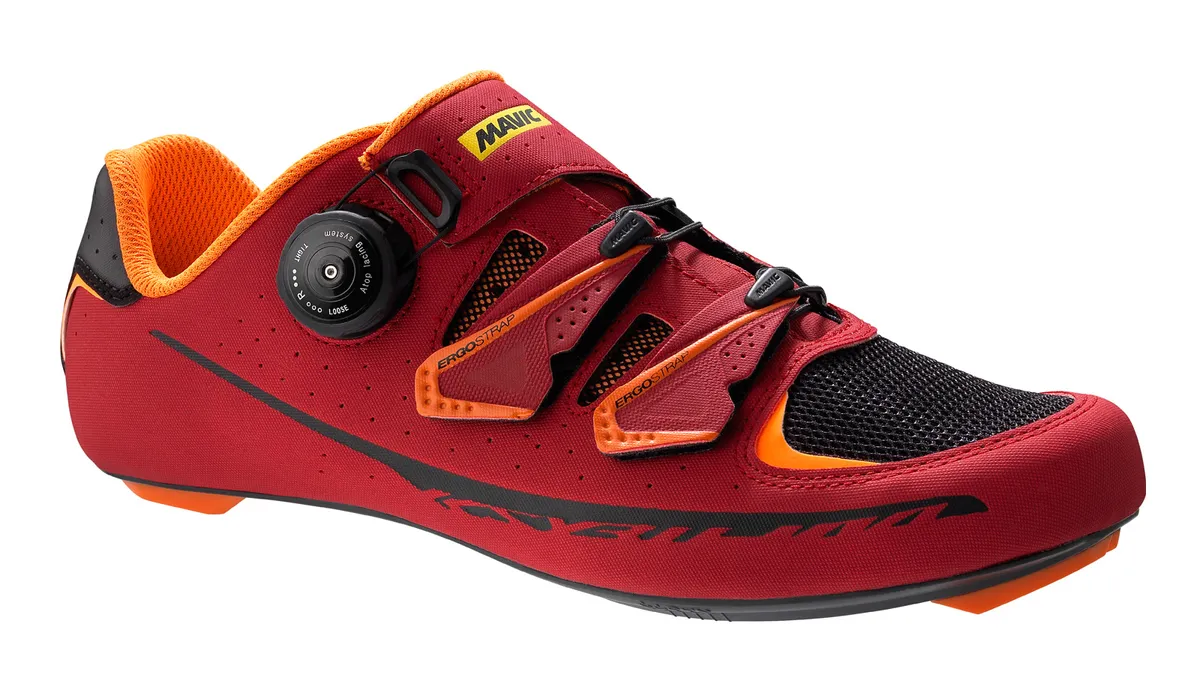Some 16 years after Mavic first introduced the Kysrium as an innovative alloy wheelset, the French company has reinvigorated the name with a refreshed identity focused around endurance-style riding. Beginning in July, Mavic will have eight wheelsets and even shoes, clothing and gloves under the Ksyrium banner.
The big news within all of this is the Ksyrium Pro Allroad Disc, a go-anywhere 1,620g tubeless road disc wheelset built for 30mm tyres with 19mm internal-width rims, along with clincher and tubular versions of the Pro Carbon SL climbing wheel that also has modern, wide rims.
Read our first-ride review (and video) of the Ksyrium Pro Allroad Disc here
As the bike industry squabbles over wheel-axle standards, Mavic has hedged its bets with triple compatibility — all new wheels will come with adaptors to work with 12mm thru-axles, 15mm thru-axles and standard quick releases.
"12mm thru-axles are coming on many 2016 road disc bikes," said Mavic road product manager Maxime Brunand. "But we want our wheels to work for everyone."
As other wheels companies have jumped on the wider-is-better bandwagon, Mavic had been holding on to narrow-is-aero rim profiles. Its first and current version of the carbon clincher, the Cosmic Carbone 40 C, has a 13mm internal rim width. By comparison, Zipp, Reynolds, ENVE and others have gone 17, 19 and even 21mm in some cases.
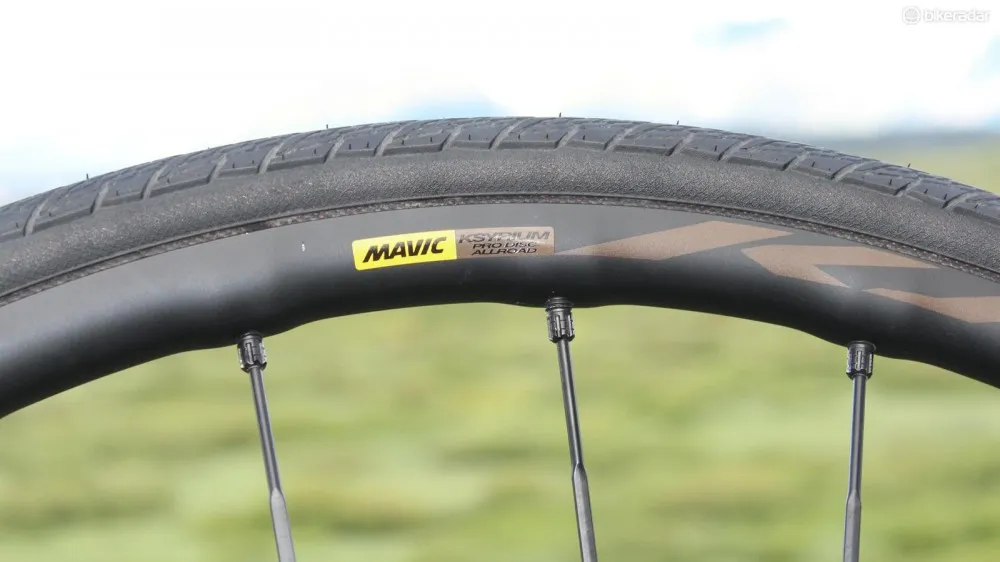
Mavic's approach with 19mm rims for rough-road riding and 17mm rims for standard road riding has been a measured development, the company says.
"We are not the first [to go wider], but we have done our homework,” Brunand said. "You have heard the claims of lowered rolling resistance, better traction and the lower pressures you are safely able to achieve with wider rims and tyres for more comfort. We offer all that, but our Allroad and Pro Carbon SL wheels and tyres have been carefully designed as a system."
"We have not gone crazy wide for a reason, because there are compatibility and safety issues," Brunand said. A 19mm rim, for instance, should not be used with a tyre any narrower than 28mm, and a 17mm rim should not be used with anything smaller than 25mm, according to ETRTO (European Tyre and Rim Technical Organisation), which sets the international ISO standards. As its name implies, ETRTO is comprised of European tyre and rim manufacturers. As the wide-rim trend began, Michelin hosted other ETRTO companies at its facility, Brunand said, "to demonstrate that when you get outside these specifications there is a danger of the tyre blowing off the rim".
Ksyrium Pro Allroad Disc (US$1,250 / £750 )
Designed for riders who like to mix in dirt, gravel or just bad-surface roads along with your run-of-the-mill tarmac, the Pro Allroad Disc is a beefy tubeless wheelset with a new, quick-engaging hub that Mavic is calling Instant Drive 360.
The machined, 19mm internal-width rim weighs a claimed 420g. Although the UST rim works with any tubeless tyre 28mm or larger, it was designed specifically for the 30mm Yksion Elite Allroad that comes with the wheel.
The120tpi Elite Allroad has a light file tread down the centrewith deeper profiles on the side, and a nylon puncture protection layer from bead to bead.
The 30mm tubeless-ready Yksion Elite Allroad tyre is 320g. Sealant adds another 40g per wheel.
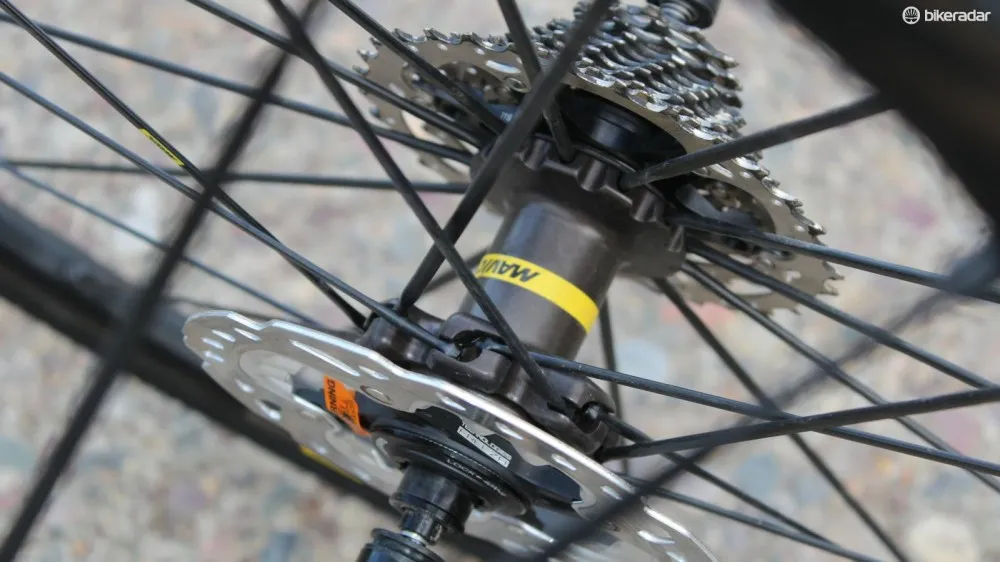
The new hub has a nine-degree engagement, an improvement over the previous 17 degrees on the current Ksyrium hubs. Also, and perhaps of more interest to current Ksyrium owners, is an improved seal to protect bearings and internals from moisture and debris.
The hubs are convertible between quick release and 12mm and 15mm thru-axle without the use of tools.
The Krysium Pro AllRoad Disc will be available in Centerlock and six-bolt versions in July in the US and in September in the rest of the world.
Ksyrium Pro Carbon SL clincher and tubular, in rim and disc brake
Mavic’s first carbon clincher wasn’t exactly a carbon clincher — the CC40 has an aluminium backing inside the rim that serves as a heat sink and a tyre interface. It was also super thin, with a 13mm inner rim width. The new Pro Carbon SL C retains that aluminium insert, which adds 80g for a total and still very light rim weight of 405g. But the profile is fully modern, at 17mm across.
As other wheel companies have seen heat-induced rim failures on carbon clinchers in recent years, Mavic stands firmly behind its aluminium insert.
“We have to make not just the lightest climbing wheel, but the most durable,” Brunand said. “There is no way Mavic will sacrifice durability for weight. This is why the wheel took us a long time to develop.”
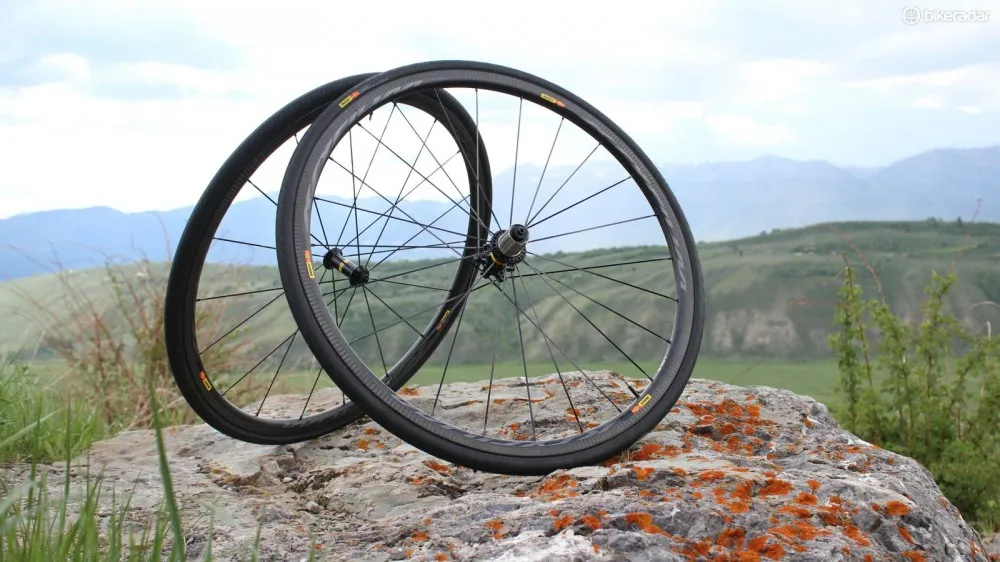
At 405g, the rim is even with or lighter than the competition, Brunand said, but can withstand more abuse, he claims.
The new Pro Carbon SL is lighter but just as durable as the CC40, Brunand said.
Mavic did a fair amount of temperature testing on the new wheels with thermometer stickers inside the rims that record maximum temperature. Brunand said Mavic discovered that there is a dangerous middle ground when it comes to rider speed and brake-induced temperature. At slow speeds, the rims has time to cool as the rider brakes. At high speed, the wind helps cool the rim. “The bad spot is in between,” Brunand said. “We don’t disclose exactly where this is because we don’t want our competitors to know.”
Brunand did say that one year when working service on Etape d’Tour, he saw “so many” carbon wheels destroyed on a rainy day, where riders were hesistant to descend quickly and thus rode their brakes at the in-between speed.
The Pro Carbon SL has 24 rear and 18 front spokes, with laser machining on the TgMAX brake track. Mavic claims this treatment results in superior braking, reducing stopping distance up to a claimed 48% better than an unspecified competitor.
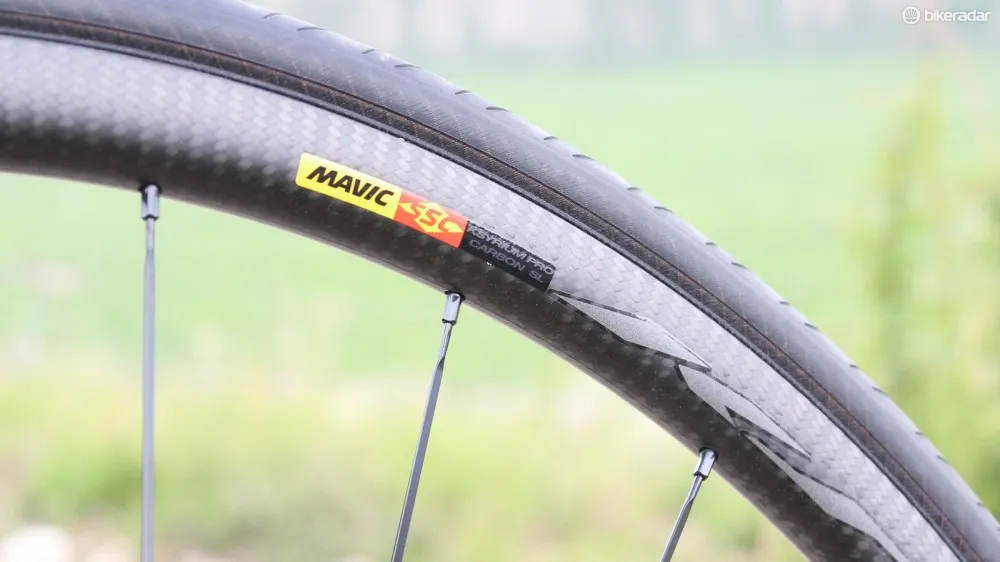
As for the rim width, Mavic could go wider, Brunand said. “The outer width only matters for aero. What matters more is inside width,” he said. “If we go over 17, the minimum tyre size is 28. And I’m not sure climbers are ready to use 28mm tyres yet."
Using the new nine-degree Instant Drive 360 hub, the wheels weigh a claimed 1,390g.
The Pro Carbon SL also comes in a 1,190g tubular, which comes with 270g Mavic tubular tyres.
Finally both clincher and tubular will come in disc-brake versions as well, which add a few spokes up front and a few grams. Cost is the same regardless of brake style, at US$2,199 / £1,350 for the clinchers and US$2,399 / £1,425 for the tubulars.
Ksyrium bib shorts and gloves with Ortholite memory foam
Mavic's new Ksyrium Pro Bib Shorts have a somewhat unique chamois made with Ortholite memory foam. While the general cut is fairly standard, the area under the sit bones is quite thick — about 25mm compared with the rest of the 5mm-thick chamois.
The Ortholite memory foam retains the shape as long as pressure is applied. Stand up out of the saddle and the chamois returns to its original shape, sit back down and the pad adapts. The added girth is certainly noticeable over a standard bib, however.
Mavic is also using Ortholite pads in the new Ksyrium gloves.
Rounding out the Ksyrium softgoods line are jerseys and shoes, not in Mavic yellow but in orange and burgundy.
